Political Blogs
Congressman Jason Smith's Capitol Report - Valuing Life
June 04th 2018 by Dee Loflin
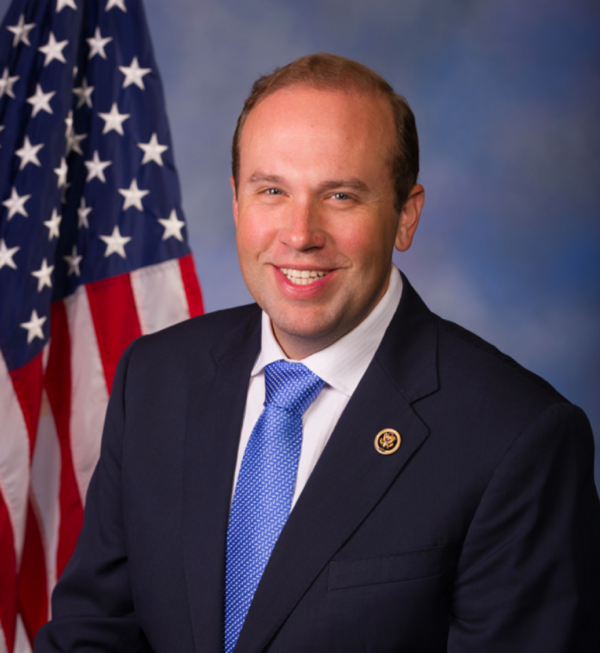
Congressman Smith Capitol Report
Valuing Life
June 1, 2018
Protecting innocent life. Whether just conceived or on your death bed, innocent life is something we must never stop fighting to defend. In the last two weeks some of the biggest strides in the fight to protect life have taken place, thanks in large part to a President who values the need to protect those who can’t fight for themselves.
Announced on May 18, President Trump’s “Protect Life Rule” ensures that any federal family planning money (your tax dollars!) will be directed AWAY from centers which provide abortion services and instead diverted to pro-life maternal support facilities like the Rolla Pregnancy Resource Center, Birthright of Cape Girardeau, the Options for Women (Center for Life) in Ste. Genevieve and Perryville, and so many more important pro-life centers around Missouri. Cutting off federal dollars for facilities which provide abortion services has been a consistent and meaningful fight of mine, unfortunately our efforts were always stymied by a broken United States Senate, subject to rule of the minority with its filibuster tactics. The hardworking family first folks of Missouri don’t deserve to have their taxpayer dollars used to perform abortion services or support facilities which offer such options to expectant mothers. Cutting off federal funding for abortion providers was something started by President Reagan, upheld by the United States Supreme Court and is now finally being carried out by President Trump.
This week, President Trump also signed into law the “Right to Try Act”, legislation I supported in Congress which will give terminally ill patients the right to fight for life. Many terminally ill patients and their doctors know there are drugs and treatments for their diseases which may soon hit the market, but are still a few years away from final Food & Drug Administration (FDA) approval. Unfortunately, in many instances those are precious years these patients don’t have. Bureaucratic red tape shouldn’t stand in their family’s way of doing everything they can to save their loved one. Every year over 1 million Americans die from terminal illnesses, the Right to Try Act will allow patients like these a chance to fight back and a new resource in their fight for life. Specifically the new law will allow terminally ill patients to access drugs which have undergone the FDA’s Phase I of safety testing, but are not yet through the final approval process. This is important new access to medicines which in many cases will save lives. Bureaucracy should never thwart innovation which can save lives.
Beyond the beginning and end of life, we have also taken important steps to protect innocent life from deadly Pediatric Cancers which rob children of their futures. Last week, Congress passed The Childhood Cancer Survivorship, Treatment, Access and Research Act. This important piece of legislation established grants to support Pediatric Cancer research aimed at getting a better understanding of cancers impacting children and the effects of different treatment on those cancers. With better information we can make sure these children are getting better care which will yield better life saving results.
While the first 18 months of President Trump have generated great economic and security successes such as the removal of over 1000 bureaucratic federal regulations, massive tax relief, greater border security and the decimation of the ISIS terrorist network, it is also important to not overlook the significant advances which have been made in the most important area of all, the fight for life. Formally implementing a ban on federal dollars to abortion service providers, appointing conservative pro-life judges like Neil Gorsuch, giving terminally ill patients access to medications which will save lives, and enhancing support for childhood cancer research are life changing victories for millions of Americans today and those not yet born. Our fight isn’t over, but with so many advancements I am excited for what the future holds in our battle for the right to life.
Last Updated on June 04th 2018 by Dee Loflin
https://showmetimes.com/Blogpost/vai4/Congressman-Jason-Smiths-Capitol-Report--Valuing-Life
Senators to FCC: Wireless Coverage Map Falls Short
May 31st 2018 by Dee Loflin
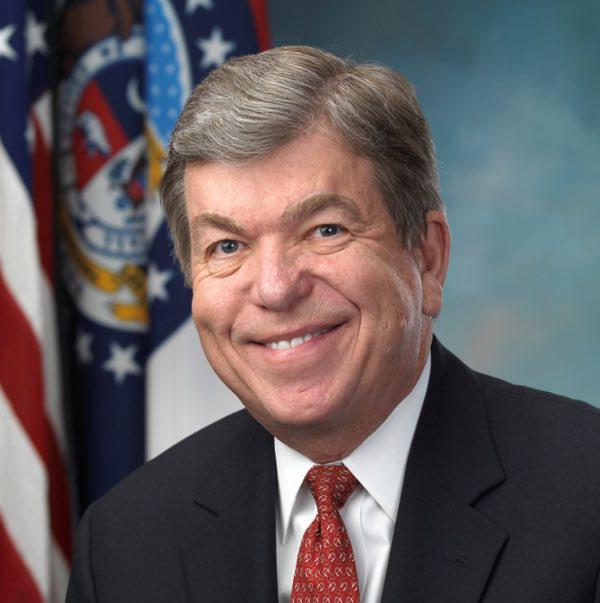
Bipartisan Group Calls on FCC to Extend Challenge Process for Map to Determine $4.53 Billion in Rural Broadband Support
Washington, D.C. - U.S Senator Roy Blunt (Mo.), a member of the U.S. Senate Commerce Committee, joined a bipartisan group of 29 Senators in sending a letter to Federal Communications Commission (FCC) Chairman Ajit Pai urging him to extend the challenge process for the map of eligible areas for Mobility Fund Phase II support. The FCC’s presumptive eligibility map will help determine up to $4.53 billion in support for rural wireless broadband expansion over the next 10 years.
“While you have noted that state, local, and Tribal governments can participate in the challenge process, absent additional direction, they may remain unaware or unprepared to do so,” the senators wrote. “We appreciate and encourage additional outreach to state, local, and Tribal governments on how they can participate in the challenge process.”
In the letter, the senators asked the FCC to extend the challenge process window by 90 days to allow additional outreach to stakeholders, and to allow challengers to assemble the necessary data to challenge the eligibility map in their area.
In March, Blunt and a bipartisan group of senators sent a letter to the FCC expressing serious concerns about the agency’s Mobility Fund Phase II map. In the letter, the senators noted “significant gaps in mobile coverage beyond what is represented by the map’s initial presentation of ‘eligible areas.’”
Click here for more on Blunt’s efforts to expand rural broadband.
In addition to Blunt, the letter was signed by U.S. Senators Roger Wicker (Miss.), Maggie Hassan (N.H.), Jerry Moran (Kan.), Brian Schatz (Hawaii), Angus King (Maine), Cory Gardner (Colo.), Sherrod Brown (Ohio), Pat Roberts (Kan.), Jeanne Shaheen (N.H.), James Lankford (Okla.), Ron Wyden (Ore.), Richard Shelby (Ala.), Tammy Baldwin (Wis.), Cindy Hyde-Smith (Miss.), Patrick Leahy (Vt.), Ron Johnson (Wisc.), Amy Klobuchar (Minn.), Todd Young (Ind.), Thom Tillis (N.C.), Chris Coons (Del.), Claire McCaskill (Mo.), Kamala Harris (Calif.), Tina Smith (Minn.), Tom Udall (N.M.), Catherine Cortez Masto (Nev.), Tammy Duckworth (Ill.), Doug Jones (Ala.), Edward Markey (Mass.), and Deborah Fischer (Neb.).
The letter reads in full:
Dear Chairman Pai:
As you know, many of us have expressed concern about the accuracy of the Federal Communications Commission’s map of eligible areas for Mobility Fund Phase II Support (MFII). This map is intended to reflect areas that lack unsubsidized mobile 4G LTE service, but it unfortunately falls short of an accurate depiction of areas in need of universal service support. Therefore, the FCC’s challenge process will play an outsized role in determining appropriate eligible areas for MFII support. Communities in our states that are not initially eligible or successfully challenged will be ineligible for up to $4.53 billion in support over the next 10 years, exacerbating the digital divide and denying fundamental economic and safety opportunities to rural communities.
While you have noted that state, local, and Tribal governments can participate in the challenge process, absent additional direction, they may remain unaware or unprepared to do so. We appreciate and encourage additional outreach to state, local, and Tribal governments on how they can participate in the challenge process. However, with less than 100 days remaining and additional state outreach presentations not yet completed, MFII challengers will struggle within the current timeframe to provide requisite information that will correct significant flaws in the current map. Additionally, the parameters for challenges have already changed once during the existing challenge timeframe through the Order on Reconsideration on April 30, 2018, altering existing measurements for challenges.
In recent testimony before the Senate Appropriations Committee, you expressed that the FCC has “some flexibility [for] an extension of time” to ensure sufficient time for state and local governments, as well as carriers and other potential challengers, such as state farm bureaus, to fully participate in the process. To provide this additional time and encourage participation in the challenge process, we urge you to extend the current challenge process window by 90 days.
The MFII process presents an opportunity to take significant steps to address the digital divide and preserve and expand mobile broadband in rural areas. We strongly urge you to ensure this opportunity is available to all communities deserving support through compiling accurate data that reflects our constituents’ experience, including providing additional time for challengers to submit data, conducting additional information sessions for state, local, and Tribal governments, and providing Congress with an update on final eligible areas before conducting an auction of support.
Last Updated on May 31st 2018 by Dee Loflin
https://showmetimes.com/Blogpost/vahc/Senators-to-FCC-Wireless-Coverage-Map-Falls-Short
Congressman Jason Smith's Capitol Report - This Memorial Day .....
May 25th 2018 by Dee Loflin
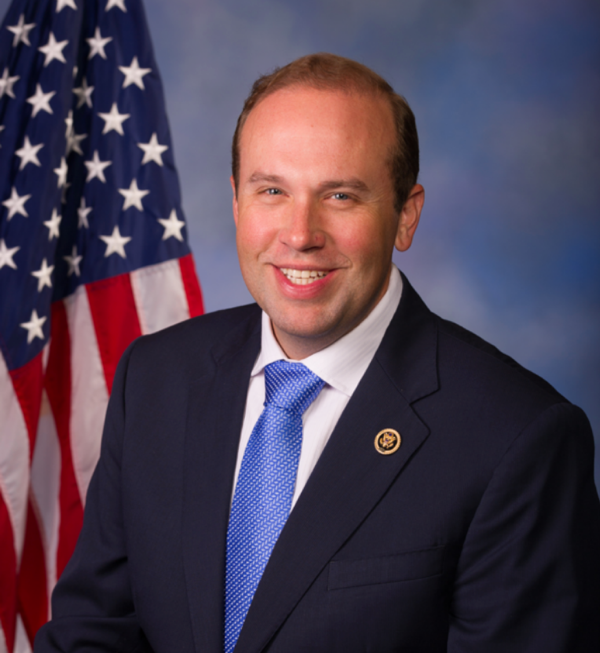
Congressman Smith Capitol Report
This Memorial Day…
May 24, 2018
With its unofficial observance dating back to the Civil War, this year’s Memorial Day on May 28th, 2018 will represent the 47th year we have set aside the last Monday in May to officially recognize those Military Members lost in service to the United States of America. The freedoms so many American’s can, and rightfully should, exercise this Memorial Day would have never been possible without the sacrifice so many of our nation’s young, our nation’s brave, have made in honor of defending those very freedoms.
It can be hard to know what to do or how to appropriately pay tribute to those lost each Memorial Day. Many of us will make an extra effort that day to say ‘thank you’ to an active duty Military Member or spend time visiting with Veterans in our community. In our Nation’s Capital this week, we passed legislation providing our troops with the largest pay raise in 9 years, and authorized the resources General Mattis says are needed to help rebuild our military and provide them with the equipment, technologies and defenses they need to keep safe. Providing our military with the resources to sustain, repair and rebuild military infrastructure not only does right by our service members, but also helps keep millions of American families safe here and around the globe.
But Memorial Day is about more. It is really about learning the names of the members of our communities who lost their lives defending our freedoms - learning their stories, remembering them and saying a prayer for their lives lost in our defense. You can do this in many ways, historically, on this day, to honor those lost in the Civil War, small towns would decorate with flowers and other items the graves of soldiers fallen in the deadliest war our nation has ever known. At Arlington National Cemetery, for more than 60 years they have paid honor to those lost with the ‘Flags-In” tradition by placing miniature U.S. Flags at over 220,000 headstones and niche rows. In recognition of the 150th Anniversary of the Civil War, this Memorial Day, several National Parks in Georgia, Virginia and Maryland will hold a special tribute to lives ended on the battlefield in the Civil War. Many towns in southern Missouri will honor service members who gave the ultimate sacrifice through parades and with our friends and neighbors flying their flags at half-staff till noon.
On Monday, I will spend time honoring the lives of southern Missourians lost during World War I by visiting the Doughboy Statue in Jackson, where seven names of fallen soldiers who were newly identified have been added to the existing statue. I will then participate in the Sikeston Memorial Day Ceremony and finally the Missouri State Veteran's Cemetery Memorial Day Ceremony in Bloomfield.
If your Memorial Day traditions typically include family, barbecues or a ball game, try to remember why you have the freedom to do those things this weekend, and pay respect to those who have fallen in the line of duty to protect those rights. Say a prayer for them, observe a moment of silence, lay a wreath, or play taps at home – but most importantly, learn their stories. Learn the names of those who grew up in our towns, our communities, in our backyards, whose relatives you know and who gave everything for the country they loved, for the country you love and for the country I love. There is no better way to honor them, then by never forgetting them.
Last Updated on May 25th 2018 by Dee Loflin
https://showmetimes.com/Blogpost/vago/Congressman-Jason-Smiths-Capitol-Report--This-Memorial-Day-
Congressman Jason Smith's Capitol Report - An Addiction that Kills
May 21st 2018 by Dee Loflin
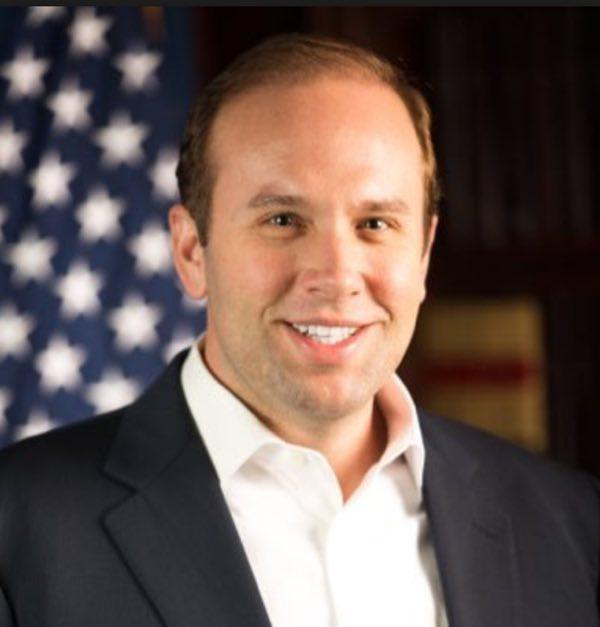
Congressman Smith Capitol Report
An Addiction that Kills
May 18, 2018
Over the counter, under the table, stolen from a family member, begged for from a friend, purchased in a back alley, hidden in a classmates locker, received from a coworker, leftover from an injury, a forged prescription, obtained from a complete stranger. Homeless, well-educated, rich, poor, athletic, bookworm, dropout, cheerleader, unemployed, successful, mother, father, son, daughter. Synthetic opioid pain relievers like fentanyl, oxycodone, hydrocodone, morphine and so many others can find their way to anyone through any way possible. They don’t discriminate based on the user’s background and they certainly don’t care how you get them, but the national opioid epidemic is here, it’s real, and it’s deadly.
With over 30,000 opioid related deaths last year, those dying from opioid overdoses has tripled since the turn of the century. The amount of opioid deaths each year more than doubles those related to illicit drugs like heroin, or legal substances like alcohol. To look at it another way, opioid deaths last year accounted for more than double the number of murders in the entire United States for the year. Unless we start taking more steps to address it, these numbers will continue to climb until each one of us has lost a friend, a neighbor, or a loved one to this catastrophic epidemic.
In 2016, the Comprehensive Addiction and Recovery Act was signed into law which encompassed a number of efforts to combat opioid abuse pervasive across the country. From programs to help infants born to opioid addicted mothers to more oversight of doctors prescribing painkillers, it was an important first step to addressing some of the most glaring things which could be done to mitigate the explosion of opioid usage in America. But clearly more must be done.
Specifically, we must get to the root of the problem – where are most Americans first exposed to opioids? How do they become addicted? Approximately 51 million Americans undergo inpatient surgery each year, and over 80% of the patients who step foot into some type of surgery room receive a pain relief opioid. Roughly 75% of those patients usually have leftover unused opioids after a surgery – creating the opportunity for addiction, resale and abuse. In other words, the surgical setting is contributing to the opioid crisis by potentially exposing millions of patients annually to the risk of addiction. Patients receiving opioids after surgeries have a 44% increased risk of long term opioid use, and over 60% of people who walk out of the hospital with 3 month prescriptions for opioids will remain on those same opioids years later.
To address and reduce opioid use in surgical settings, most recently, I authored, introduced and advanced in Congress the Perioperative Reduction of Opioids (PRO) Act. This legislation will help bring about changes to limit patient exposure to opioids during pre and post-surgery center visits, better inform patients on pain management, help prevent opioid misuse and abuse after patient discharge and set up systems for safe storage and disposal of opioids. To fix any problem, you have to get to the source of the occurrence; to fix any leak, you have to identify where the problem spot is located – combatting opioid abuse is no different. We know patients are being prescribed opioids at a higher rate than ever before and opioids are more readily available than ever before. If we can cut down on the way patients are legally obtaining opioids, we can help prevent the illegal usage and illegal acts they take later on to fuel that addiction.
We have all read the sad stories about the mother of three young children, the valedictorian destined for big things, or the high school soccer star whose life was ended at the hands of an opioid addiction. But more than thinking about what could have been for these individuals, we must take action to turn the tide against an addiction which is consuming more and more of our country each day. It is my hope the PRO Act can be one small part of that solution by addressing the legal ways in which folks get their hands on opioids and ultimately become dependent on them. My heart hurts with each story I hear about another southern Missouri life lost as a result of the deadly grip of opioid addiction. I pray for their life, for their friends, and for their family, but my prayers also include finding a solution to this crisis which so many of our towns and communities are now facing.
Last Updated on May 21st 2018 by Dee Loflin
https://showmetimes.com/Blogpost/vafi/Congressman-Jason-Smiths-Capitol-Report--An-Addiction-that-Kills
Blunt Commends USDA’s Appointment of Richard Fordyce to serve as Farm Service Agency Administrator
May 16th 2018 by Dee Loflin
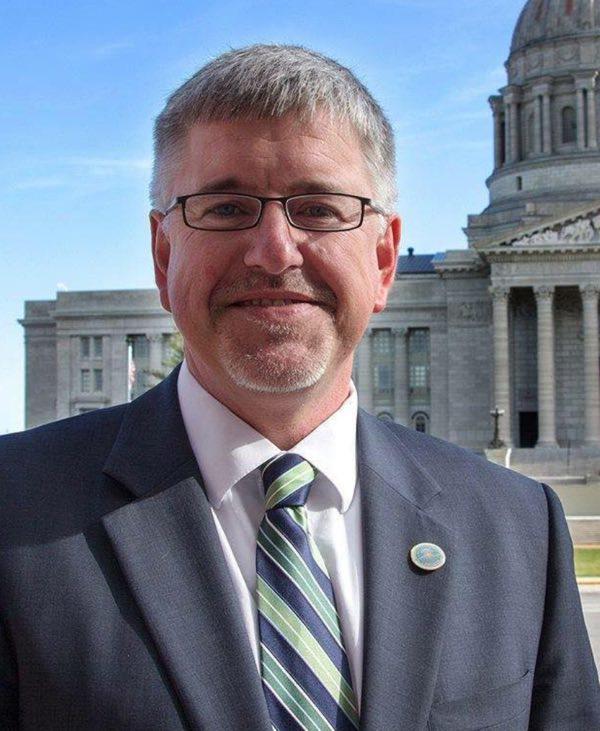
Blunt Commends USDA’s Appointment of Richard Fordyce to serve as Farm Service Agency Administrator
Washington, D.C. - U.S. Senator Roy Blunt (Mo.) released the following statement today commending U.S. Secretary of Agriculture Sonny Perdue’s announcement that Richard Fordyce has been appointed to serve as Administrator of the United States Department of Agriculture Farm Service Agency:
“Richard Fordyce is a 4th generation farmer, dedicated public servant, and tireless advocate for rural communities. His background as the head of the Farm Service Agency’s state office and the Missouri Department of Agriculture has undoubtedly prepared him to lead the network of 2,100 county and 50 state offices. I’m grateful for his service to our state and look forward to working with him to improve the quality of life in rural communities and ensure farmers have the support they need to continue leading the way in a global economy.”
Last Updated on May 16th 2018 by Dee Loflin
https://showmetimes.com/Blogpost/vae5/Blunt-Commends-USDAs-Appointment-of-Richard-Fordyce-to-serve-as-Farm-Service-Agency-Administrator

